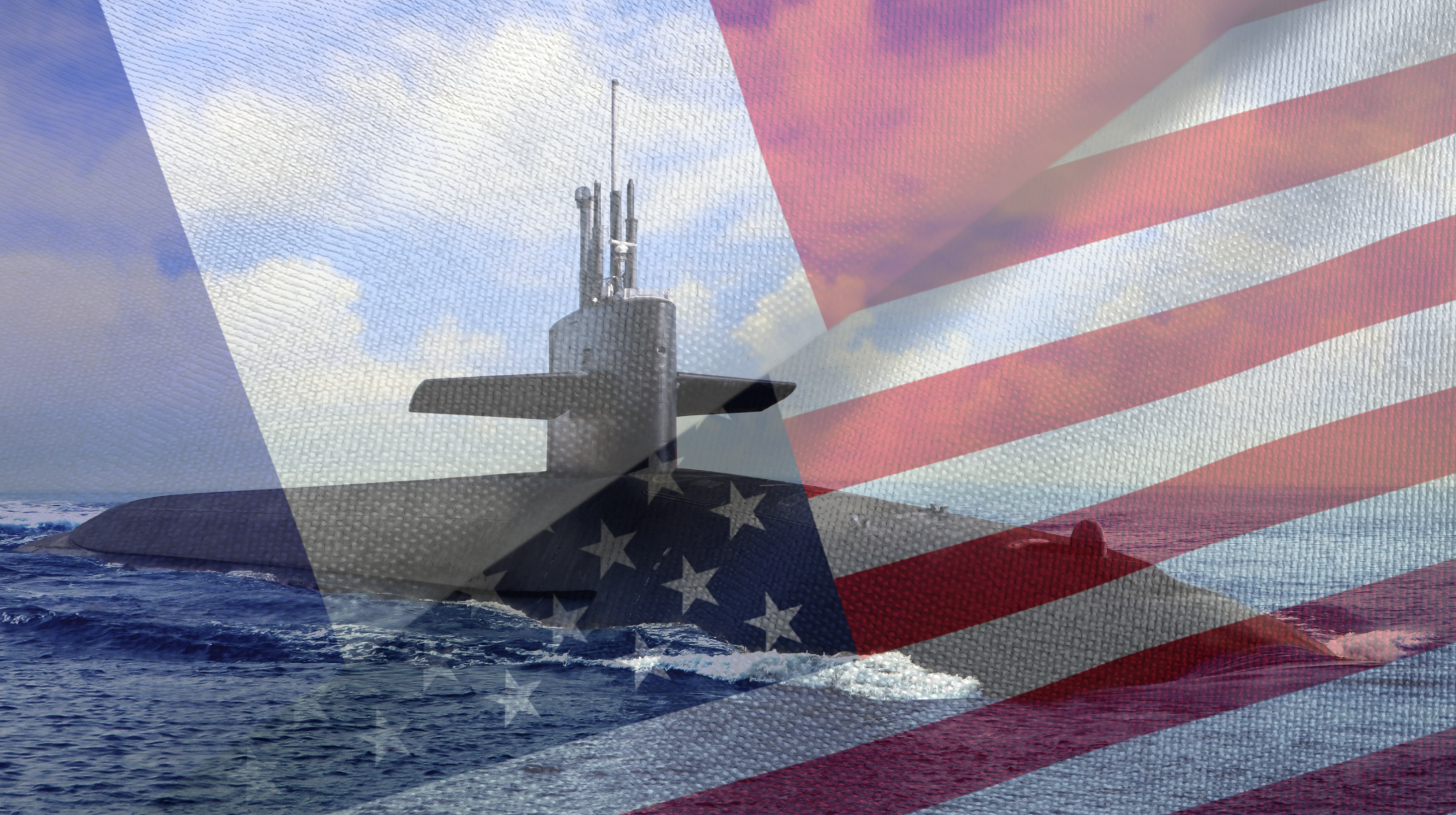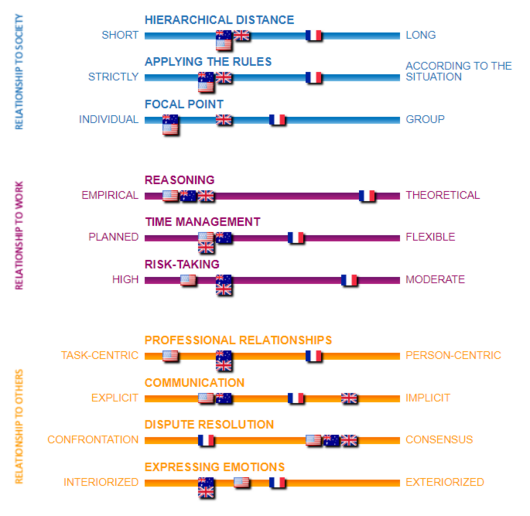The submarine affair: the American attitude under the cultural microscope
For the first time in its history, France has recalled its ambassador to Washington. How can we culturally understand this "exceptionally serious" affair, in the words of the French Foreign Minister?

Beyond the geostrategic, economic and political consequences of the breach of this contract, Laurence Petit and Sylvie Day, Akteos consultants, offer us a threefold reflection on the notion of friendship, contract and honour and the importance of cultural proximity in the process of creating trust.
"There was a lie, there was duplicity, there was a major breach of trust, there was contempt, so things are not right between us, they are not right at all."
Indignation is at its peak. The words of Jean-Yves Le Drian on Saturday 18 September on the France 2 TV news programme, following Australia's cancellation of its contract for the delivery of French submarines in favour of the United States, express the betrayal felt by France.
Beyond the anger, we try to understand. The geostrategic stakes, at the heart of Australia's about-face and the United States' desire for a stronger presence in the region, have since been the subject of numerous expert analyses. We are not going to add a new opinion on the relevance of US military strategy or the future of NATO. Our purpose here is different. We propose to revisit the events of the last few days from an exclusively cultural angle, focusing here on the American attitude and the French reaction, two cultures in which we have spent part of our lives.
We will highlight three points in particular:
1. There are friends... and friends
"Between allies, it is not done" commented Nicolas Sarkozy. "When you are a friend, that gives you rights and creates duties. What could be worse than betraying one's friends? But in fact, are the Americans really our "friends" in the French sense of the term?
To understand the difference between the notion of "friend" in the United States and that of "friend" in France, it is customary to draw an analogy with two fruits, the peach (American) and the coconut (French).
Just as the solid shell protects the interior of the coconut, the Frenchman often needs time to open up and give himself away. Little by little, affinities develop, the shell cracks open, and thus a friendship is built, slowly, which is destined to last and which presupposes absolute trust. Authenticity and loyalty are the key words here.
Conversely, like the tender flesh of a peach, the American quickly opens up to his interlocutor and is immediately warm. In his value system, good practice is to be cordial, open and smiling. The problem is that, because of the level of closeness shown and the use of the word 'friend', the Frenchman thinks he has made a friend, a real one, and is unaware that he still has a hard core to break through before he can enter the American's intimate sphere, where we can talk about trust, rights and duties of friends as we understand them in France.
Not being aware of this difference exposes us to misunderstandings and disappointments. In other words: in friendship, beware of false friends... Are we at the heart of the American core? That is the question.
2. Logic of contract and logic of honour
These are the terms used by the French anthropologist Philippe d'Iribarne to explain the different logics prevailing in labour relations on the two sides of the Atlantic. They shed some light on the present situation: in a contractual logic, any breach of contract certainly entails (financial) consequences provided for in the clauses, but it is not accompanied by any particular emotion. There is no emotion. The action is not directed against people; the focus is on the interest, the business at hand. In cross-cultural jargon, we say that American culture is task-oriented: "Nothing personal", "Business is business" are expressions that reflect this state of mind. Even if the contract is broken, there is nothing to prevent us from maintaining good relations, as these are two separate things.
In the logic of honour, the professional relationship is more emotional, full of pride and self-respect. Where American business culture is task-oriented, French culture is more person-centred. I am personally committed to the contract. When it is broken in the way we have experienced here, I feel humiliated because it is my honour that is violated.
So I can feel entitled to strike back, and even be personal in the attack. By saying that 'Joe Biden is Donald Trump without the tweets', while knowing the American political context and the relationship between these two men, I know that this statement can hurt.
If French anger is perceived by many Americans as legitimate, the emotional expression of it surprised in the United States, where the management of emotions is more internalized in business. Thus, the American press referred to the cancellation of the gala evening in Washington and the recall of the ambassadors as "sulking".
3. Birds of a feather come together
In his book "Effective international business communication", Bob Dignen describes the ingredients for developing trust in an international context. One of the first ingredients is similarity: we trust people who are similar to us. This invites us to question the notion of cultural proximity.
The Akteos Cultural Profiler makes it possible, on the basis of ten criteria or cultural dimensions, to identify the differences between cultures. In this respect, the comparison of the cultural profiles of the countries involved in the submarine affair (Aukus countries and France) is edifying:
Comparison of the American, Australian, British and French Cultural Profiles
With the notable exception of the mode of communication (much more indirect in the case of the British), the trio of the United States, the United Kingdom and Australia is almost in line on most cultural dimensions. This demonstrates what we already suspected: beyond the linguistic proximity and the common historical belonging to the British Empire, these countries also have similar modes of operation in the professional context, which greatly facilitates collaboration.
France, on the other hand, is further away from these three cultures, with the greatest differences being in risk-taking and, above all, in reasoning. It is therefore not surprising, beyond the power relationships and the geopolitical context, which are obviously central here, that an Australian is naturally more sensitive to arguments put forward by Americans and Britons who reason like him than to those of the French, who have been shaped by four centuries of French-style Cartesianism, which is completely foreign to him.
This being the case, the cultural gap is not an incompatibility. On the contrary, it can be a source of very constructive complementarity. But it requires a constant effort. Will we be ready to make it?
This is not the first time that the Franco-American relationship has been put to the test. This affair is part of a historically passionate and complex relationship, marked, on the love side, notably by the contribution of the Marquis de Lafayette to American independence, by the landings of the American ally during the two world wars or by the Marshall Plan, but also, on the dislike side, by a latent anti-Americanism in France since the 19th century, when writers such as Baudelaire and Stendhal reproached America for "its ignorance, its vulgarity, and its lack of intellectual refinement". By claiming, as the United States does, the universality of our model (aren't we the homeland of the Universal Declaration of Human Rights?), we feel that we are in competition with them, while being well aware that we are not playing in the same league.
The Americans too have felt "betrayed" on several occasions, for example when France left the integrated command of NATO in 1966 or when it refused to participate in the war in Iraq in 2003. So, is this a new marital dispute or a deeper malaise? In light of the relationship with the British, our "best enemies" since the battle of Hastings nearly a thousand years ago, one can imagine that the complexity of the Franco-American relationship has a long way to go.

